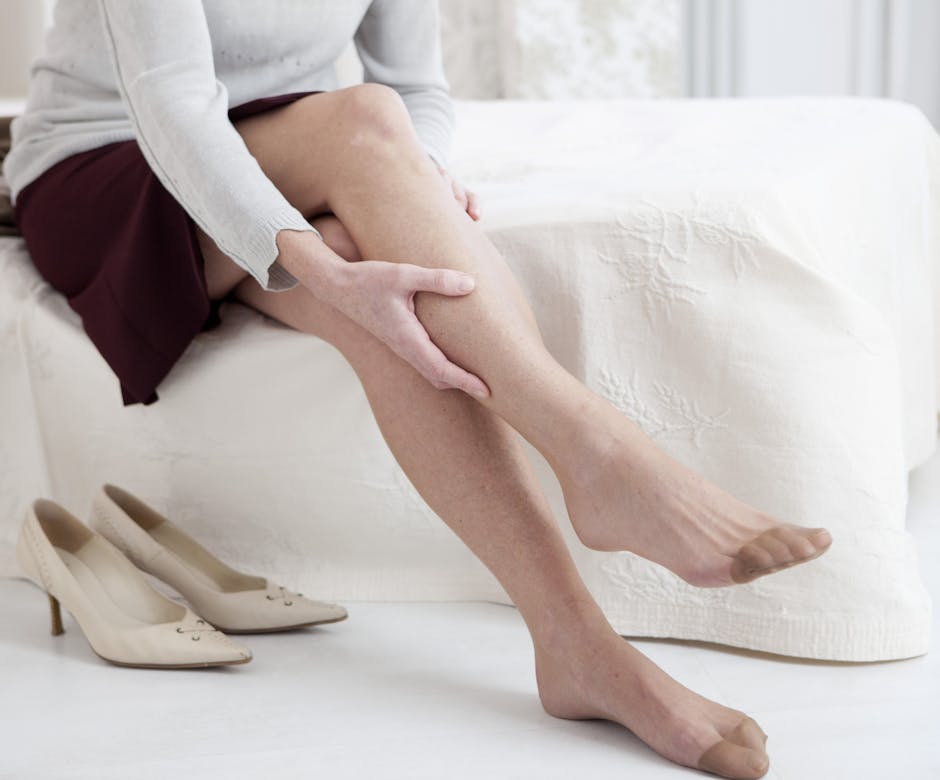Are my calf cramps due to a lack of magnesium?

A muscle cramp is an involuntary contraction of one or more of your muscles. While they cause no lasting damage, cramps can make it temporarily impossible to use the affected muscle and can lead to soreness for some time afterwards. Muscle cramps often occur in your calf muscle, and are most likely to occur in people over 65 years of age.
Argh! Leg cramps, particularly at night can be so irritating! You move the wrong way when you are sleeping and then are woken with a start!
Increased exercise, particularly in warmer weather can increase the risk of cramps. Taking diuretic medications are known to deplete your potassium, calcium and magnesium supplies, and possibly increase the risk of cramps. Having poor blood supply (vascular disease), or compression of the nerves in you spine can also contribute to your muscle cramps. People with diabetes, or women who are pregnant are known to have a greater risk of cramps.
Often we see that people are wearing footwear that may be contributing to muscle tightness in their legs that can lead to cramping at night. The way your foot functions can also lead to muscle tightness and a Biomechanical examination to assess the cause of your muscle tightness may shed some clues on how to treat your calf cramps.
It is often thought that a lack of magnesium or potassium will cause you to get calf cramps. Magnesium is found naturally in foods like leafy greens, fish, nuts and whole grains. There are many supplements containing the mineral available to purchase, however, evidence of the efficacy of magnesium supplements to treat muscle cramps is limited. The only evidence to support taking magnesium is for women who are pregnant.
So, while you may have some deficiency in magnesium, there are many other reasons why you may be getting a calf cramp.
Top Tips to Help Reduce your Muscle Cramps
1. Drink plenty of water
2. Try to include magnesium rich foods in your diet, such as leafy greens, nuts and lentils
3. Stretch your muscles daily and before going to bed
4. Massage your muscles, or use a warm heat bag to increase blood flow to your calves if they are tight
If you are struggling with calf cramps, speak to your GP and make sure that problem is not serious. If your health has been checked, the Podiatrists at Foot Right Podiatry are able to assess your leg cramps to see if there are any underlying causes for your cramps.
We want you to have a good nights rest so you can remain active as long as you can! Contact us today for a consultation and we may be able to get rid of those leg cramps for good!